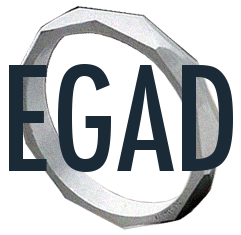Case 1: Addressing Noted Gaps in Graduate Attribute Coverage
![]()
Findings:
![]()
Curriculum maps of Program X indicted that development of all Engineering Graduate Attributes was supported in first year programming. Course ENG100, ENG102 supported all 12 attributes. While none of the remaining 10 first-year courses dealt with all 12 attributes, in aggregate, they included introductions to, instruction in and assessment of all attributes. Student surveys and focus groups supported curriculum mapping data.
The results of curriculum mapping, confirmed by student surveys and focus group interviews, also indicated that there were no reports of opportunities to develop or demonstrate attributes 3.1.9 (Impact of Engineering on Society and the Environment) or 3.1.10 (Ethics and Equity) again until late in 4th year.
Judgment:
![]()
In light of the department’s newly articulated aim to graduate engineers with a heightened sense of environmental responsibility and social justice, faculty members and the curriculum committee deemed current programming congruent with stated aims.
Recommendations & Further Action:
![]()
Increase opportunities for students to continue to develop skills and knowledge related to attributes 3.1.9 (Impact of Engineering on Society and the Environment) and 3.1.10 (Ethics and Equity) through 2nd and 3rd years.
Building on suggestions generated by students in focus group interviews, faculty members identified opportunities within the current curriculum that might be used to better advantage. Instructors who used case studies updated them to include components related to both under-represented attributes. Associated rubrics were similarly updated. It was anticipated that minor adjustments such as these would result in significant improvements to programming and to student satisfaction with their learning experience.
What criteria might you choose to judge the relative success of the changes made?

